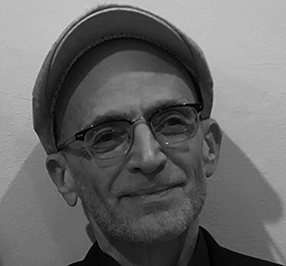I hear a dog who is always in my death
How is it you bring me back to the cliffs the bright heads of eagles the vessels of grief in the soil? I dig for you with a gentle bit of lighter fluid and three miniature rakes burning only a single speck of dirt to touch a twig as tiny as a neuron or even smaller one magic synapse inside the terminus limbs of your breath
The fighter jets fly over the house every hour no sound but inside our hands I hear a far chime and I am cold a north wind and the grit of night first the murmur then the corpse first the paddling then the banquet first the muzzle then the hanging the plea first the break then the tap the tap I hear your skin the reach of your arms the slick along your thighs more floorboard than step first the flannel then the gag first the bells then the exhale
I hear a dog who is always in my death the breath of a mother who holds a gun a pillow in the shape of a heart first the planes then the criminal ponds first the ghost boats then the trains first the gates then the bargain a child formed from my fingertip and the eye of my grandmother’s mother a child born at 90 the rise and rush of air a child who walks from the gas
Copyright © 2019 by Samuel Ace. Originally published in Poem-a-Day on January 10, 2019, by the Academy of American Poets.
“I wrote this poem one morning feeling the closeness of death, the remoteness of the dead, and the persistent rise and reprise of fascism. I yearned to speak to relatives I never knew, like my great-grandmother, who, as a Jew, was murdered in Europe during World War II. I also long to know my mother and father again in their new incarnations. Maybe I actually do know them all and am only vaguely aware they live close by, perhaps just down the block. Poems are a communication far beyond the words they are made of—a dog’s language, a future, or a shovel digging toward those who have just gone, or are long gone, or are simply the breath of a spirit who is knocking on the door and wants to come inside, sit for a minute, drink a cup of coffee, and tell us where they've been.”
—Samuel Ace

